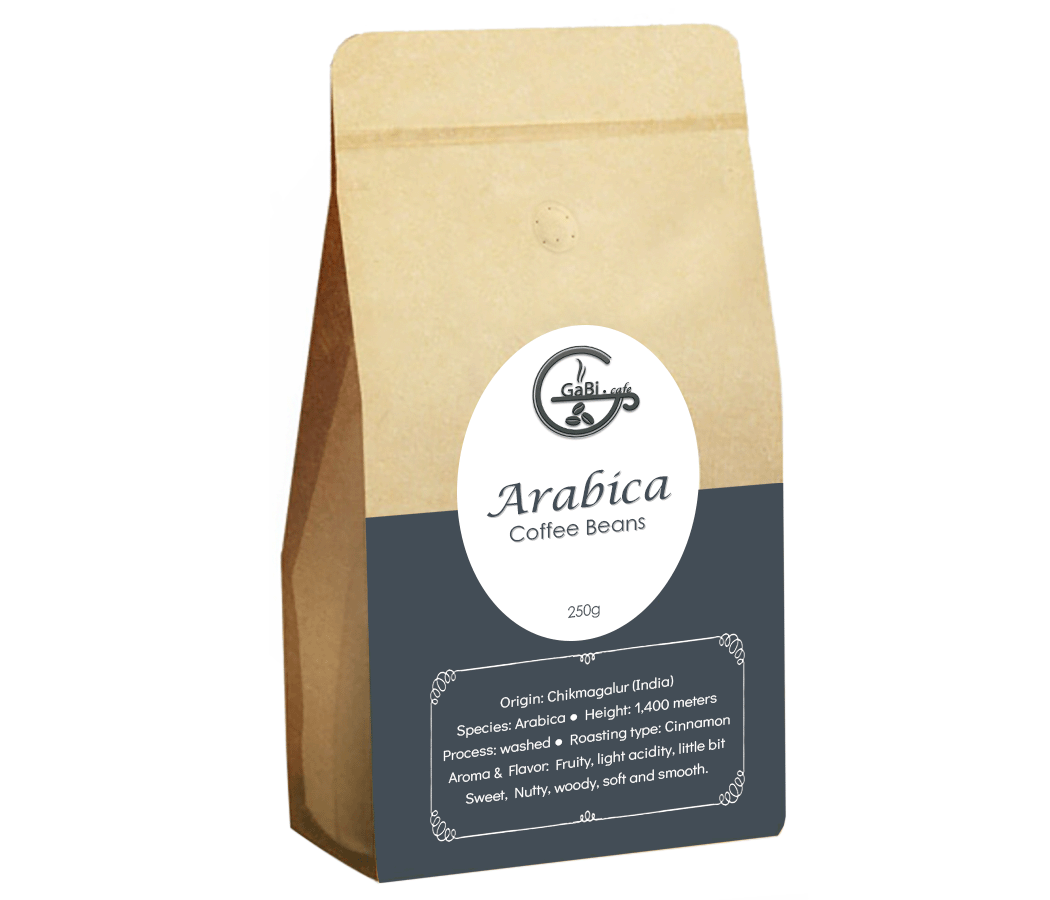Arabica coffee beans are beloved by coffee enthusiasts worldwide for their superior quality, rich flavors, and aromatic complexity. Whether enjoyed as a single-origin coffee or as part of a blend, Arabica coffee beans offer a delightful and rewarding coffee experience.
Arabica coffee beans are one of the two primary species of coffee plants cultivated for commercial production, alongside Robusta (Coffea canephora). Here’s a description of Arabica coffee beans:
- Origin: Arabica coffee (Coffea arabica) is believed to have originated in the highlands of Ethiopia, where it was first cultivated and consumed as a beverage. It is now grown in coffee-producing regions around the world, particularly in countries located within the “coffee belt,” a band of regions around the equator known for their optimal coffee-growing conditions.
- Characteristics: Arabica coffee plants are typically grown at higher altitudes, ranging from 600 to 2,200 meters above sea level. They prefer mild temperatures, ample rainfall, and well-drained soil. Arabica beans are oval-shaped with a deep crease on one side and contain less caffeine compared to Robusta beans.
- Flavor Profile: Arabica coffee is celebrated for its nuanced flavor profile, which can include a wide range of tasting notes such as floral, fruity, nutty, chocolaty, and sometimes spicy undertones. The flavor can vary significantly depending on factors such as the coffee bean’s origin, growing conditions, altitude, soil composition, climate, and processing methods.
- Aroma: Arabica coffee is renowned for its rich and aromatic fragrance, which can be floral, fruity, or even herbal. The aroma of Arabica coffee beans is often complex and enticing, contributing to the overall sensory experience of coffee enjoyment.
- Acidity: Arabica coffee typically exhibits a bright and lively acidity, which adds complexity and balance to the flavor profile. The acidity can range from mild to pronounced, depending on factors such as the coffee’s origin, roast level, and brewing method.
- Cultivation and Processing: Arabica coffee plants require careful cultivation and maintenance, including regular pruning, proper irrigation, and protection from pests and diseases. They are more susceptible to environmental stressors compared to Robusta plants and require attentive care to ensure optimal growth and yield. Arabica beans are usually processed using methods such as washed (wet) processing or natural (dry) processing.
- Usage: Arabica coffee beans are widely used in specialty coffee production, prized for their exceptional quality, nuanced flavors, and aromatic qualities. They are often enjoyed as single-origin coffees to showcase their unique terroir or blended with other coffee varieties to create well-balanced and complex coffee blends.
Overall, Arabica coffee beans offer a delightful drinking experience characterized by their nuanced flavors, aromatic qualities, and wide range of tasting notes. Whether enjoyed as a pour-over, espresso, or cold brew, Arabica coffee beans continue to captivate coffee enthusiasts around the world with their exceptional quality and versatility.







Reviews
There are no reviews yet.